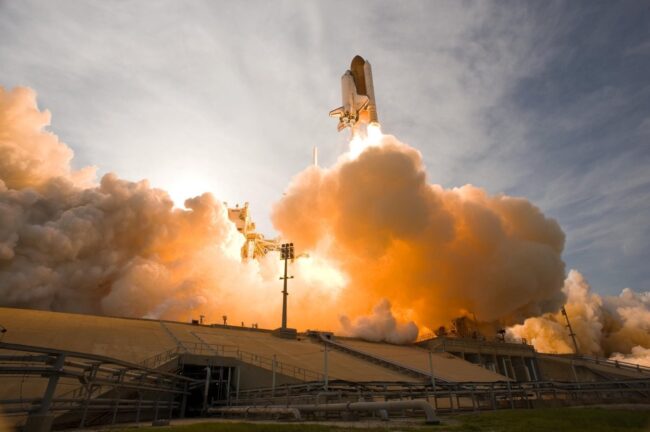The Master of Engineering (MEng) Aeronautical Engineering course combines our BEng (Hons) Aeronautical Engineering degree with Masters-level material. It allows you to distinguish yourself with an advanced set of professional and technical skills and removes the need to source further funding to study a Masters qualification.
Aeronautical engineers apply their knowledge and skills to every aspect of air vehicles; from design, development, manufacture, flight testing and certification, to preserving airworthiness and sustainable aircraft operations. You’ll study the engineering principles needed for a career in the aerospace industry, and you’ll gain practical experience on campus in our state-of-the-art Aerospace Centre.
Weather permitting, you’ll also take to the skies with flight test lessons in your third year. Work placements and experience will complement your studies, along with visits to sites such as GE Aviation Wales, Airbus Filton and British Airways Maintenance Cardiff (BAMC).
What you will study
For the first three years, you will study alongside those on the BEng (Hons) Aeronautical Engineering course. The aim of the fourth year is to further develop your skills in leadership and team management. You will also gain a more detailed and in-depth understanding of technical subjects and have the opportunity to apply what you’ve already learned on a substantial group based project.
Year One: Aeronautical Engineering degree
Year one provides essential scientific principles and practices associated with aeronautical engineering. This includes an introduction to using design tools and general manufacturing/workshop techniques. You will also learn how to use industry-standard CAD packages and programming language.
- Mathematics for Mechanical and Aeronautical Engineers – 20 credits
- Design and Manufacture – 20 credits
- Engineering Computing Applications – 20 credits
- Engineering Mechanics 1 – 20 credits
- Electrical Science – 20 credits
- Thermofluids 1 – 20 credits
Year Two: Aeronautical Engineering degree
In your second year, you’ll explore key areas such as thermofluids, basic aerodynamics, aircraft performance and aircraft systems engineering. Year two culminates with the development of a conceptual aircraft design in a team environment, which is tested on our engineering flight simulator.
- Further Engineering Mathematics – 20 credits
- Control and Instrumentation – 20 credits
- Thermofluids 2 – 20 credits
- Engineering Materials – 20 credits
- Aircraft Systems Integration and Performance – 20 credits
- Aeronautical Design – 20 credits
Year Three: Aeronautical Engineering degree
Year three modules include aerodynamics, propulsion and aircraft structures. You’ll learn about advanced computational tools and modelling techniques, and produce a dissertation. You’ll also have the opportunity to participate in real aircraft flight testing as part of our Flight Dynamics and Control module.
- Individual Project (BEng) – 40 credits
- Engineering Computational Analysis – 20 credits
- Aircraft Structure – 20 credits
- Aerodynamics and Propulsion – 20 credits
- Flight Dynamics and Control – 20 credits
- Supervised Work Experience (SWE) – 120 credits (optional)
Year Four: Aeronautical Engineering degree
- Integrative MEng Group Project – 40 credits
- Advanced Materials and Manufacture – 10 credits
- Further Finite Element Analysis – 10 credits
- Further Computational Fluid Dynamics – 10 credits
- Aeroelasticity – 10 credits (optional)
- Advanced Propulsion – 20 credits (optional)
- Strategic Leadership and Management for Engineers – 20 credits
Teaching
The aeronautical engineering programme is taught through a combination of lectures, tutorials, practical laboratory sessions and seminars. You will also need to devote time to self-study, such as conducting research and preparing for your assessments and lectures.
You will also have the opportunity to visit sites such as Airbus-Filton, GE Aviation, and British Airways Maintenance Cardiff (BAMC) and learn from guest lectures delivered by senior industrialists, on current technological advancements in the field.
Assessment
Modules are assessed through a mixture of exams, coursework and problem-based exercises. Speaking in front of your colleagues also forms part of your assessment in group design and project modules, which will develop your presentation and communication skills.
You will also have the opportunity in your third year to fly a real aircraft to consolidate your understanding of aircraft behaviour and control principles.
Zobacz więcej na stronie uniwersytetu >>
Wiza studencka do Wielkiej Brytanii
Aby studiować w Wielkiej Brytanii potrzebujesz wizy studenckiej. Aby złożyć wniosek o taką wizę studencką musisz zdjać certyfikat językowy na poziomie B2.
Uważaj! Do celów wizowych musisz wybrać wyłącznie egzamin w wesji Secure English Language Test (SELT) UKVI .
Co to jest test SELT UK VI registration? Przeczytaj więcej o testach SELT UKVI >>




















